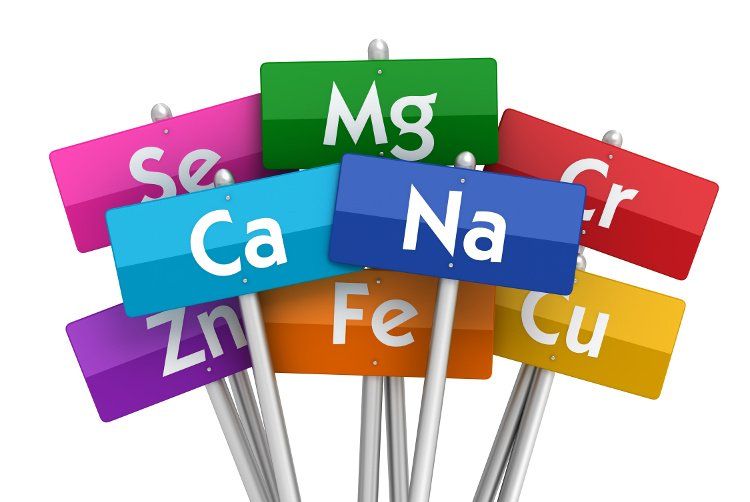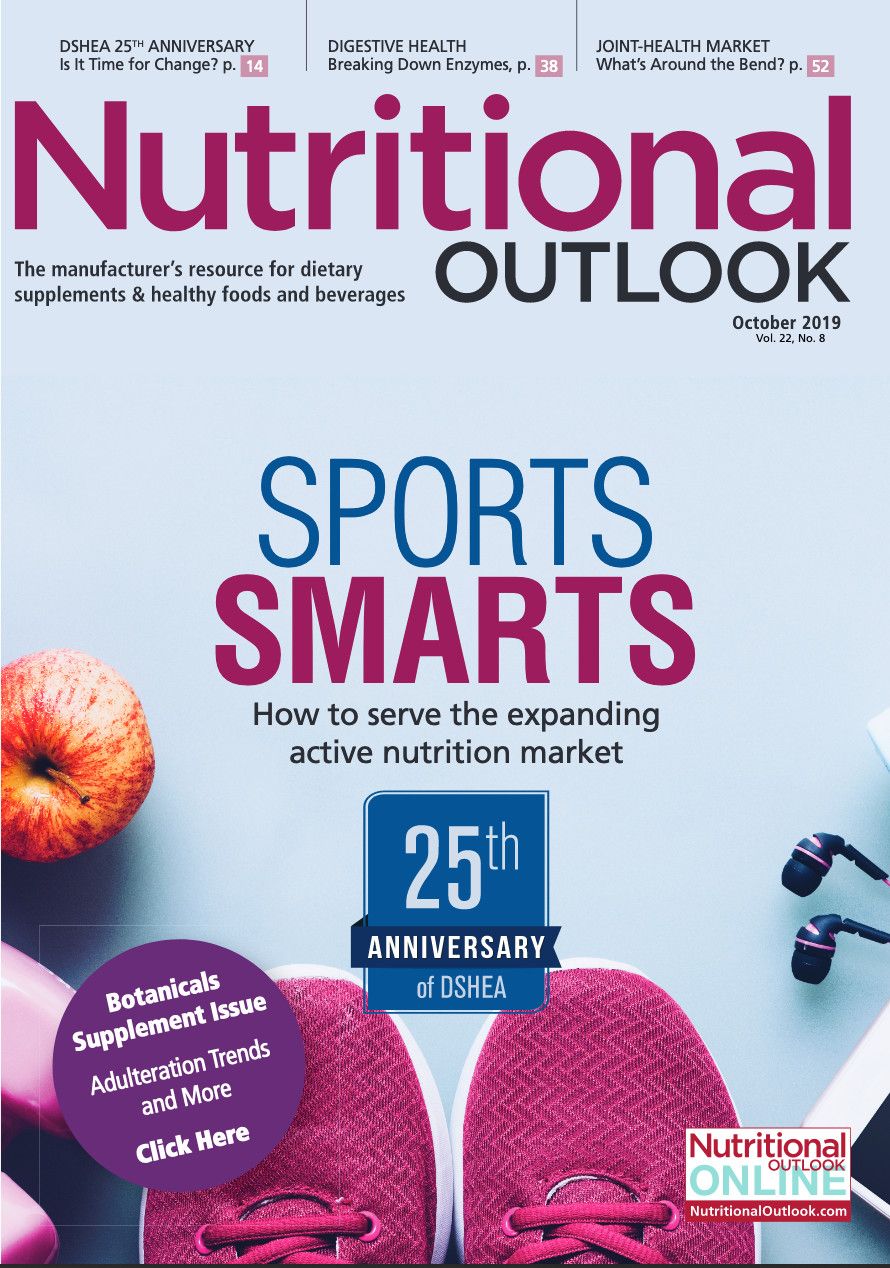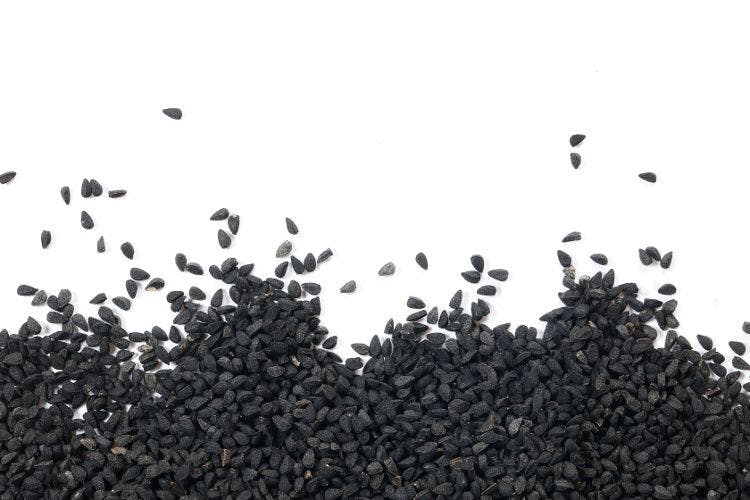Modernizing mineral ingredients: Advances in the nutritional minerals market
Mineral ingredients are advancing to meet today’s formulating and delivery system demands.
Photo © AdobeStock.com/frender

The market for minerals is growing, thanks to ongoing research, government recommendations, and ever-increasing public awareness of the role minerals play in good health. And as the market grows, all interested parties are changing the way they do business with it. Mineral suppliers are constantly innovating to create more trusted products that are easier to work with, and brands are answering to the constantly changing interests and attitudes of their mineral consumers. We explore the science and innovation behind today’s most popular minerals-but also the challenges in making sure your product can stand out from the rest.
Magnesium
Magnesium continues to dominate mineral sales. With poor soil health depleting the amount of magnesium available in fruits and vegetables worldwide, magnesium supplementation and food fortification has become a widespread practice. Add to that a growing body of positive clinical research on magnesium, and there are plenty of factors contributing to the market success this ingredient has enjoyed in recent years.
“Many researchers are emphasizing the importance of magnesium for wellbeing,” says Youval Saly, vice president of business development for Gadot Biochemical Industries (Haifa Bay, Israel), a specialty minerals supplier. “There has been a significant increase in sports nutrition awareness and the importance of magnesium in athletic recovery. In addition, consumers are starting to take note of magnesium’s benefits for brain health and not just the body. Aspects of mood, sleep, and migraine support are becoming emerging areas of interest as well.”
One way to distinguish a magnesium product from others in today’s marketplace may be to formulate with citrate-based magnesium. Though many existing magnesium products are made with magnesium oxide, research (old and recent) suggests that citrate-based magnesium is significantly more bioavailable.
Combining magnesium with calcium in a single product may also prove worthwhile, since the two ingredients work together to support bone health. Gadot Biochemical Industries is marketing citrate-based magnesium as well as calcium and magnesium compositions for powders and tablets in response to frequent requests from around the world.
Sea Minerals
The market for sea minerals has been around for at least a decade, but suppliers with vested interest in the category say demand has increased in recent years. Marigot Ltd. (Cork, Ireland), which supplies Aquamin brand minerals from sea water and red algae, says the growth is in part a result of increasing demand for plant-based products. “The fortification of plant-based products with plant-based minerals seems to be a perfect solution,” the company says. CK Nutraceuticals (Oakville, ON, Canada), another player in the category, supplies its Deep Ocean Minerals. The ingredients are sourced from deep ocean water in Taiwan, and they are said to mimic the body’s natural mineral composition.
In sea minerals, manufacturers can get standardized amounts of macro-minerals like magnesium and calcium, but these ingredients come with an attractive, extra feature: trace minerals.
So far, Marigot and CK say they are seeing strong demand for their minerals in liquids and beverages in particular. Each has been active in pursuing clinical research on its own products. Marigot is involved in ongoing studies on joint health, arthritis, gut health, and cognitive health, and CK Nutraceuticals recently announced the publication of an independent study1 on its minerals and potential benefits for high-intensity running.
Trending Delivery Systems
For those unfamiliar with mineral fortification in the health products marketplace, potential applications include but are not limited to cereals, snacks, beverages, powder mixes, infant formulas, tablets, and capsules. In catching up with custom manufacturers, however, Nutritional Outlook learned that a few delivery systems are trending more than others.
“I’ve worked in the dietary supplement manufacturing space for nearly 15 years, and over the last 12 months I’ve seen a considerable uptick in demand for hydration formulas,” says Blayney McEneaney, vice president of sales for dietary supplement contract manufacturer NutraScience Labs (Farmingdale, NY). His customers are formulating beverages with magnesium, potassium, and sodium, while demand for tablets specifically has waned some.
McEneaney’s observations are confirmed by several other suppliers and contract manufacturers we reached out to for this story. In general, demand from product manufacturers is for all types of convenient, on-the-go applications. Gummies are another growing area of mineral business. Like beverages, they appeal to children, older adults, and anyone seeking convenience and/or who has trouble swallowing tablets and capsules.
Stability and Taste
As varied as mineral applications are, they are ultimately limited by whether or not the final product has acceptable sensory properties since certain minerals can have an unpleasant flavor and metallic aftertaste.
In response to this problem, Balchem Corp. (New Hampton, NY), supplier of Albion branded minerals, introduced a Taste Free line of Albion minerals, including calcium, iron, magnesium, and zinc.
NutraScience Labs also says it is seeing its own success by joining minerals with natural flavors and sweeteners in final formulas.
Improving the stability of minerals in a given system can sometimes indirectly improve the flavor of minerals. Prinova (Carol Stream, IL) says that it’s able to mask off-notes in ingredients like iron and magnesium by encapsulating or coating ingredients, which also improves ingredient stability.
Transparency and Clean Labels
With increasing access to information, consumers are demanding more of their dietary supplement and functional foods than ever before. Ingredient suppliers and contract manufacturers are witnessing this firsthand in the requests they get from finished product manufacturers. While general label claims such as organic and non-GMO were once the highest standard for many shoppers, Best Formulations (City of Industry) says that full supply chain and formulation transparency have emerged as additional requests.
The contract manufacturer adds that vegetarian alternatives continue to see upward traction. With tablets now losing some of their previous popularity, capsule formulations create a growing need for non-animal softgels, which Best Formulations is now committed to on a large scale.
Sidebar: Mineral Research Update
The library for clinical research on minerals is vast at this point, but new studies are added every month. Nutritional Outlook reached out to Balchem Corp. (New Hampton, NY), supplier of Albion minerals, with a request for new research that could be impacting sales and popularity of minerals. Here’s what we got:
Zinc: In reviewing 78 previous studies on zinc supplementation, U.S. researchers concluded that zinc supplementation in children under five years of age was associated with significantly improved growth outcomes.2 Not long after, a research paper broke with a proposed model for predicting growth response to zinc supplementation in zinc-deficient infants.3
Magnesium: Sara Adaes, PhD, an investigator of neurobiological pain at the University of Porto in Portugal, writes that magnesium is a regulator of neurotransmitter signaling and that it regulates the activity of calcium channels in brain cells.4
Choline: Though not classified as a mineral, choline is often provided in mineral supplements. A recent study concluded that maternal choline supplementation during the third trimester may result in cognitive benefits for offspring.5
References:
- Higgins MF et al. “Oral ingestion of deep ocean minerals increases high-intensity intermittent running capacity in soccer players after short-term post-exercise recovery: A double-blind, placebo-controlled crossover trial.” Marine Drugs. Published online May 24, 2019.
- Liu E et al. “Effect of zinc supplementation on growth outcomes in children under 5 years of age.” Nutrients, vol. 10, no. 3 (March 2018): 377–398
- Wastney ME et al. “A dynamic model for predicting growth in zinc-deficient stunted infants given supplemental zinc.” American Journal of Clinical Nutrition, vol. 107, no. 5 (May 1, 2018): 808–816
- Adaes S. “Nurturing the Brain – Part 11, Magnesium.” Brain Blogger. Published online July 26, 2017. Accessed at www.brainblogger.com/2017/07/26/nurturing-the-brain-part-11-magnesium
- Caudill MA et al. “Maternal choline supplementation during the third trimester of pregnancy improves infant information processing speed: a randomized, double-blind, controlled feeding study.” FASEB Journal, vol. 32, no. 4 (April 2018): 2172–2180


.png&w=3840&q=75)

.png&w=3840&q=75)



.png&w=3840&q=75)



.png&w=3840&q=75)






















